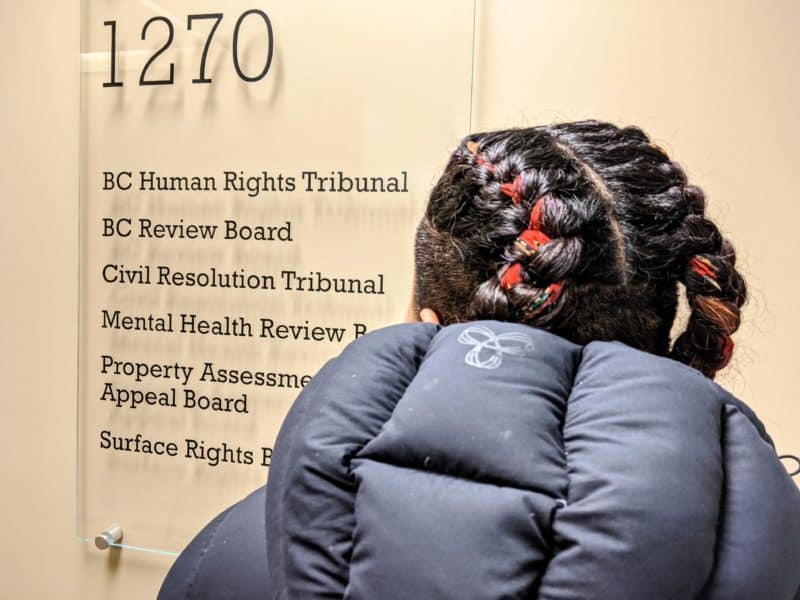
This is from our Urban Nation newsletter. You can subscribe here.
In December 2016, Prime Minister Justin Trudeau addressed a meeting of the Assembly of First Nations in Quebec. There, he talked about the significance of Vancouver-Granville MP Jody Wilson-Raybould becoming Canada’s first Indigenous Minister of Justice and Attorney General.
“She is our government’s loud and clear message to our country that the laws of this land that were, and in many ways still are, used to control and constrain Indigenous Peoples are now the particular responsibility of a First Nations person. An Indigenous woman,” Trudeau said.
Wilson-Raybould, whose traditional name is Puglaas, is a member of the We Wai Kai First Nation. She is a lawyer and former crown prosecutor, and the former Assembly of First Nations BC regional chief. She was a living, breathing symbol of Trudeau’s promises about reconciliation with Indigenous Peoples, and his commitment to a new relationship with them during the 2015 election.
“No relationship is more important to me and to Canada than the one with Indigenous Peoples,” Trudeau told AFN chiefs. “It is time for a renewed, nation-to-nation relationship with Indigenous Peoples, one that is based on recognition of rights, respect, co-operation, and partnership.”
And then the SNC-Lavalin affair burst onto news headlines.
Although the matter is about SNC-Lavalin, the conversation bleeds into the reconciliation space because of who Wilson-Raybould is and what she symbolized. So, as we wait for more details to emerge, what I want to know is what will this mean for reconciliation in Canada?
Once-hopeful Indigenous leaders now condemn Trudeau. Union of BC Indian Chiefs Grand Chief Stewart Phillip calls Wilson-Raybould’s treatment sexist and racist. Raybould-Wilson’s father Bill Wilson — a firebrand B.C. Indigenous leader who squared off with Pierre Trudeau in 1983 — says what happened was like Indigenous people “getting kicked in the face.”
Asking if reconciliation is damaged beyond repair is an important conversation to have, and not just because of the government’s commitment to it. This is an election year, and Indigenous people are the fastest growing population in Canada.
I’m still working through all of this, but what do you think? How do you think reconciliation should be framed in the upcoming election? Reply to this email and tell me what you think. I’d love to hear from you.
People are talking about
-
Maclean’s is reporting that the Jody Wilson-Raybould affair calls into question the Liberal transformative change brand.
-
Francophone pundits in this National Post story are critical of Jody Wilson-Raybould in the SNC Lavalin affair.
-
In a CBC Power and Politics interview, Indigenous elder statesman Bill Wilson condemned the Liberal treatment of Jody Wilson-Raybould.
-
In this Tyee opinion piece, Indigenous scholars roundly decried government and media pundits treatment of Jody Wilson-Raybould.
Cultural Connections
Diana Hellson, aka Mamarudegyal, is a queer Indigenous hip-hop artist who’s using her voice to challenge misogyny, racism and stereotypes about Indigenous people.

She lives in Burnaby, but she grew up in Calgary — where she remembers kids throwing rocks at her on a regular basis because she was Indigenous and black. Diana belongs to the Siksika Nation. She’s also West Indian from Saint Lucia and has some Celtic or English roots as well.
“It wasn’t hidden. It wasn’t quiet,” she says about the racism she encountered. “It was like: You’re an n-word; you’re a wagon-burner.”
Today the 27-year-old is fighting racism and misogyny as a multidisciplinary artist. Whether through film or Rudegang Entertainment — the hip-hop group she co-founded — she’s building anti-racist, feminist spaces for Indigenous artists.
“Many Indigenous narratives are being controlled by non-Indigenous filmmakers, directors, writers, producers, etc.,” she says. Diana wants to change that.
She was recently selected to receive $20,000 to produce a short film about the Indigenous hip-hop community through the Indigenous Storyteller Edition of Telus’ STORYHIVE project. As one of 30 Indigenous grant recipients in B.C. and Alberta, she’ll receive funding along with mentorship and training.
“The hip-hop scene in Vancouver is very dominated by a bunch of white boys,” she says. Meanwhile, she sees artists of colour — “who make great hip-hop, who are not talking about drugs, who are not talking about receiving fellatio, and who are not talking about bums and cars and things” getting overlooked and excluded from the underground hip-hop scene.
Diana is working to hold up Indigenous artists because “they’re telling stories. And these lyrics are powerful and they’re beautiful.”
We’ll be publishing a longer story about Diana on Friday. Follow The Discourse on Facebook to stay in the loop.
Let’s gather
- Feb. 14 Since 1992, people have gathered on Valentine’s Day for The Annual Downtown Eastside Women’s Memorial March “to express compassion, community, and caring for all women in Vancouver’s Downtown Eastside” and “to honour the lives of missing and murdered women and all women’s lives lost in the Downtown Eastside.” Beginning at 10:30 a.m., families will gather and speak in remembrance. The broader public is invited to join when the march begins at 12 p.m. at the Carnegie Community Centre on Main and Hastings on the unceded xʷməθkwəy̓əm (Musqueam), Sḵwx̱wú7mesh (Squamish), and Selilwitulh (Tsleil-Waututh) territories. Those who wish to participate should familiarize themselves with protocol before they attend.
- Feb. 15 Got an idea for a short film with an anti-racism and resiliency theme? Join the 48-hour anti-racism film challenge, in which “teams are randomly assigned a prop or line of dialogue, and have 48 hours to create a short film containing those elements.” Teams will be mentored by experienced filmmakers. Deadline to sign up is Feb. 14. The kick-off for the challenge will be at the Collingwood Neighbourhood House in the Art Room at 4:30pm.
- Feb. 19 – Mar. 2 Celebrate Indigenous art and performance at the 18th annual Talking Stick Festival. According to organizers, “This year’s theme is hən̓əm̓stəmxw tə syəθ” (pronounced huh-num-stoh teh see-yahl), which translates to ‘Using Tradition’.” Check out the line-up for this year. [end]



